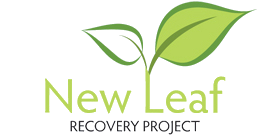Symptoms & Long-Term Effects of Cocaine Addiction

Cocaine is a very powerful, highly addictive drug. The substance can wreak havoc on the mind and body, leading to a range of harmful physical and psychological conditions.
It should therefore come as a shock that cocaine abuse is on the rise in the UK. So much so that the UK has been described as the ‘cocaine capital’ of Europe.
It has therefore never been more important to raise awareness of the many real dangers that cocaine abuse can pose.
In this blog, we will breakdown the signs, symptoms, and long-term effects of cocaine addiction, and what you can do if you think yourself or a loved one may have a problem with the substance.
Cocaine Abuse In the UK
According to Statista, the number of adults claiming lifetime use of cocaine has doubled from 5.1% to 10.3% in the last 20 years. Meanwhile, drug-related deaths in the UK were the highest on record in 2023, with roughly 30% of the 5,448 deaths recorded involving cocaine.
Many are putting this rise of cocaine use in the UK down to the growing commercialisation of the drug. Not only has cocaine never been more accessible, but with the rising cost of drinks, people are increasingly seeing cocaine as an appealing alternative.
Add to this the normalisation of heavy drinking and late nights out in British culture, and you can see why more and more people may be tempted to dabble in the drug’s use.
The danger however is that, due to the drug’s highly addictive nature, occasional use can rapidly escalate into frequent use, and eventually dependency and addiction.
The Danger of Long-term Cocaine Abuse
Here at New Leaf Recovery, many of our clients recovering from a cocaine addiction only used the drug occasionally to start off with; using it purely for recreational purposes.
However, if left unchecked, cocaine use can easily escalate into dependency and addiction. This is because users may become reliant on the substance without them even realising it. Whether it’s increasingly using cocaine at social gatherings to ensure that they have a good time, or to stave off fatigue and feel more awake, occasional cocaine use can easily turn into more frequent use.
This is a slippery slope, as with sustained use, the human body gets used to the feeling that cocaine provides. Building up a tolerance to the substance, the body will end up requiring more of the substance in order to feel the same effects.
This may lead the user to taking more of the drug in order to achieve the same high, or to avoid a “crash” or a “come down”. At this point, cocaine use becomes less of a choice, and more of a habit.
What started out as just “once in the while” quickly spirals into frequent use and reliance on the substance. Users may experience severe cravings which they feel powerless to resist, or start taking the drug just to feel “normal”.
At this point, the user has become entirely dependent – both physically and mentally – on the substance, and professional intervention is required.
Signs and Symptoms of Cocaine Addiction
As such, it is vital to understand and to be able to recognise the signs and symptoms of cocaine addiction when they appear. Early intervention is crucial if dependency and addiction is to be avoided. The most common signs and symptoms include:
1. Strong Cravings
The most significant sign of cocaine addiction is cravings. When the decision to take a substance becomes less of a choice, and more of an impulse that the user feels helpless to control, then it is a clear sign that addiction has taken root.
2. Loss of control
Many users may find themselves taking more cocaine than they had originally planned to, or using it more frequently. This may include at unconventional times, such as in the morning or at casual social gatherings. Even if they’ve promising to themselves that they’ll stop, or made a promise to loved ones, they may feel powerless to do so and so will continue using. This inability to stop, even when there is a will to do so, is a clear sign of addiction.
3. Mood Swings
Another clear sign is mood swings, or irregular, erratic behaviour. As cocaine provokes a full spectrum of emotional responses, from euphoria whilst high to anxiety and deep sadness whilst “coming down”, this can make emotional regulation more difficult in day-to-day life. This can result in unpredictable, potentially violent mood swings, or erratic, anti-social behaviour.
4. Neglecting Responsibilities
Cocaine can easily start interfering with how one functions in day-to-day life. It might cause you to run late for work, start neglecting family relationships, or force you to give up other life responsibilities, such as housework or self-care routines. As taking the substance becomes the number one priority, other priorities tend to fall by the wayside.
5. Social Withdrawal
The momentary high of taking drugs can easily replace the joy that one derives from life’s activities, such as socialising with friends, exercising, or enjoying a hobby. The individual may retreat from the public sphere, and abandon all social relationships in pursuit of drug-taking.
6. Financial or Legal Troubles
Given the high cost of cocaine, regular consumption can be expensive. People addicted may get into debt, or even steal money, in order to fuel their habit. They may also face legal consequences for drug possession or for their erratic behaviour. These financial and legal issues are a clear sign of addiction.
7. Physical Changes
Some signs and symptoms of drug addiction are visible, so it’s important to look out for them if you suspect someone of potentially having a deeper issue with drugs. These include:
- Dilated pupils
- Red, Bloodshot eyes
- Sudden or significant weight loss
- Frequent sniffing or runny nose
- Nosebleeds (from frequent snorting)
- Insomnia or irregular sleep patterns
- Eye bags or other signs of sleep deprivation
- Poor personal hygiene
Loved ones may notice a particularly gaunt appearance, red bloodshot eyes, or general restlessness, which can all be signs of addiction.
Long-Term Effects of Cocaine Addiction
It is important to recognise the signs and symptoms of cocaine addiction, as once dependency has taken hold, the user becomes at risk of a number dangerous health conditions, both physical and mental:
Long Term Effects of Cocaine Addiction on the Cardiovascular System
Chronic cocaine use places extreme stress on the heart and blood vessels. Over time, this can lead to:
- High blood pressure
- Heart attacks
- Arrythmia (irregular heartbeats)
- Cardiomyopathy (weakened heart muscle)
- Blood clots
- Strokes & pulmonary embolism
- Heart tissue inflammation
- Permanent heart tissue damage and death
Neurological Effects
The brain also suffers significantly from persistent cocaine abuse due to the way cocaine reduces oxygen to the brain. Long-term effects include:
- Brain damage
- Risk of mini-strokes and aneurysms.
- Cerebral atrophy (brain shrinking)
- Seizures
- Lasting cognitive impairments, including weakened motor skills
- Poor attention span and impeded decision-making skills
- Movement disorders like Parkinson’s disease
Mental Health Disorders
Just as alarming as cocaine’s physical effects are the drug’s long term psychological effects. Cocaine can wreak havoc on the user’s mental health. It can either cause mental health issues directly, or indirectly by the way it affects the individuals day-to-day life. Effects and conditions include:
- Depression
- Anxiety and paranoia
- Hallucinations
- In some cases, psychosis can develop and persist even after the individual stops using
- Erratic behaviour, that others and even the user themselves may find deeply distressing
The emotional instability caused by long-term cocaine abuse can make it extremely difficult to maintain a sense of normalcy in daily life.
Sexual Dysfunction and Weight Loss
Long-term cocaine can also significantly decrease the user’s appetite, and even when someone does eat, their body often struggles to actually absorb the nutrients. Over time, this can lead to serious malnutrition, and dangerous levels of weight loss.
Sexual dysfunction is also a lesser talked about effect. Chronic cocaine use can seriously decrease the user’s libido over time, and can lead to Erectile Dysfunction in men.
Symptoms of Cocaine Addiction: Seek Help With New Leaf Recovery Today
If you suspect yourself or a loved one may have a deeper problem with cocaine, it is vital to reach out for support today. Recognising the signs and symptoms of cocaine addiction early could be vital for making a prompt and lasting recovery.
With the long-terms effects of cocaine abuse ranging from the mildly distressing to the life-threatening, it is not worth the risk ignoring the signs.
At New Leaf Recovery, we have helped countless individuals suffering from a drug problem to overcome their addiction.
With the right professional and medical support, we help empower individuals to conquer their cravings and create a healthier, brighter future for themselves.
Our treatment programmes include a wide range of rehabilitative therapies designed to cut to the core of addiction. From medically supervised detox to scientifically-proven methods such as Cognitive Behavioural Therapy, we provide our clients with all the professional tools they need to make a full and lasting recovery.
Reach out to New Leaf Recovery today, and let us help you to turn over a new leaf.
Receive a Free Call Back
"*" indicates required fields
A Complete Recovery Journey. From your initial enquiry, all the way through treatment and beyond with ongoing support, New Leaf Recovery are there to guide and support you.
New Leaf offers a complete journey of treatment, from initial detoxification and rehabilitation to ongoing support, including aftercare, family support, and beyond into long-term recovery.
Getting the right accommodation enables us to provide the right backdrop for our recovery methods. Any form of rehabilitation needs to happen in a safe, comfortable, secure and friendly environment.
Receive a Free Call Back
"*" indicates required fields










